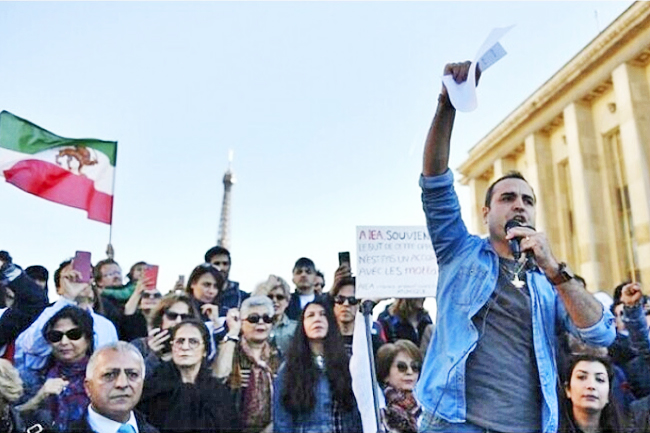TEHRAN (AFP) – Iran’s Foreign Ministry lambasted France yesterday for hosting a meeting of an exiled Iranian opposition group that Tehran considers an “extremist” organisation.
On Saturday, the Albania-based People’s Mujahedin of Iran, or Mujahedeen-e-Khalq (MEK), held a meeting outside Paris as thousands of the group’s supporters held a rally in the centre of the French capital.
Former United States vice president Mike Pence and British ex-prime minister Liz Truss attended the meeting which French police had initially banned.
Iranian Foreign Ministry spokesman Nasser Kanani “strongly condemned” the decision by the French government to host the meeting, in a tweet yesterday.
“Instead of compensating for the gross mistakes of the past in supporting the murderers of the Iranian people… the French statesmen are providing the arena for the gathering of the terrorists,” Kanani said in a separate statement.
He urged the French government “to heed the demands” of its own people instead of “supporting terrorist groups”.

France has been gripped by a wave of violent street protests sparked by the fatal police shooting of a 17-year-old of Algerian origin, identified only as Nahel M, in the Paris suburb of Nanterre last Tuesday. The MEK has been exiled from Iran since the early 1980s. It is held in deep suspicion by many Iranians, including in the diaspora and those opposed to the clerical authorities.
In 2013, Albania agreed to take in members of the group at the request of Washington and the United Nations, with thousands settling there over the past decade.
Last month, Albanian authorities raided a MEK camp amid allegations that the group was suspected of orchestrating cyber attacks against foreign institutions.
On Sunday, Iran hailed the move by Albania as “commendable”.
The MEK backed Ayatollah Ruhollah Khomeini in the 1979 Islamic revolution that ousted the western-backed shah before they fell out with the new authorities and have since sought to overthrow the government.
The group later fled to Iraq and sided with former president Saddam Hussein in the 1980-1988 Iran-Iraq war.





